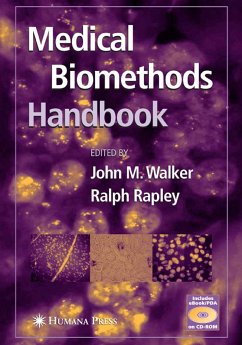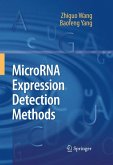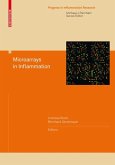Powerful new techniques in molecular biology have revolutionized our ability to investigate and define cellular processes at the molecular level for medical purposes. In Medical Biomethods Handbook, John Walker and Ralph Rapley have collected a wide-ranging group of molecular and biochemical techniques that are the most frequently used in medical and clinical research, especially diagnostics. The authors-well-established investigators who run their own research programs and use the methods on a regular basis-outline the practical procedures for using them and describe a variety of pertinent applications. Among the technologies presented are Southern and Western blotting, electrophoresis, PCR, cDNA and protein microarrays, liquid chromatography, in situ hybridization, karyotyping, flow cytometry, bioinformatics, genomics, and ribotyping. The applications include assays for mutation detection, mRNA analysis, chromosome translocations, inborn errors of metabolism, protein therapeutics, and gene therapy. State-of-the-art and highly practical, Medical Biomethods Handbook offers novice and experienced researchers an in-depth understanding of the theory, practice, and application of the key molecular biology techniques used in biomedical research and diagnostic investigation today.
Dieser Download kann aus rechtlichen Gründen nur mit Rechnungsadresse in A, B, BG, CY, CZ, D, DK, EW, E, FIN, F, GR, HR, H, IRL, I, LT, L, LR, M, NL, PL, P, R, S, SLO, SK ausgeliefert werden.
Hinweis: Dieser Artikel kann nur an eine deutsche Lieferadresse ausgeliefert werden.









